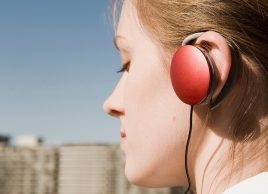Hear this! How to prevent hearing loss
Protecting your ears can help prevent hearing loss. Learn how with these tips

Source: Adapted from Your Body Your Health: The Ears, Nose & Throat, Reader’s Digest
Sound can be dangerous to the human body in two ways. First, loud noise has the potential to cause physical damage to the ear, which can result in hearing problems. Second, prolonged noise can produce emotional distress. Most people would agree that noise pollution is at best extremely annoying and at worst painful to the ear.
Physical damage
Loud noise is one of your ears’ greatest enemies. The ears are extremely sensitive, and damage to any part of their structure can cause problems. Such damage is caused by either prolonged exposure to a loud noise or by a sudden noise. Damage can be permanent or temporary, and repeated instances of temporary harm may cause permanent damage.
Damage to the ears doesn’t necessarily mean hearing loss: Ringing in the ears and physical or psychological sensitivity to some sounds are also classified as ear damage.
- Tinnitus is a persistent ringing in the ears that can be caused by very loud noise such as that at a nightclub or rock concert. In these instances, tinnitus usually lasts a few hours and normal hearing returns, but it can be an ongoing condition.
- Temporary hearing loss is the feeling of slight deafness you feel when you leave a rock concert, for example. Your hearing will recover from this trauma, but when it does depends on how long you were listening and how loud the music was.
- Permanent hearing loss may be gradual, caused by exposure to noise over a period of time.
How noisy is too noisy?
- No more than 15 minutes of unprotected exposure to sounds above 100 decibels is recommended.
- Regular exposure lasting longer than 1 minute to sounds over 110 decibels can cause permanent hearing loss. Even a one-time exposure can cause permanent hearing loss.
- Sounds over 85’90 decibels have the potential to damage your ears. This is about the same decibel level as a lawn mower.
Psychological stress
Several factors, including sleep disturbance, anger, and modified social behaviour, have been attributed to noise pollution. Though your body responds automatically to noise in various ways, people who are continually exposed to potentially threatening noises may start to anticipate them. This can lead to a chronic build-up of stress hormones and psychological anxiety.
What you can do
Minimizing noise pollution can be difficult. Despite this, the key to looking after your ears and reducing noise-related stress is to understand when you are in damaging environments and to either alleviate the source or take protective measures.
At home
- TV, radio and sound systems. Keep noise at a reasonable level: You should be able to talk easily over any piece of equipment. Be careful of the volume coming out of headphones and of that in confined spaces like your car.
- Home improvement. If you are using noisy equipment, make sure you protect your ears. This also applies to using garden equipment.
- Sports and leisure. Your hobbies may be putting your ears at risk. Anyone who rides a motorbike or goes skeet shooting should wear ear protection.
At work
Not all jobs are located in obviously noisy environments, but it pays to be vigilant. Noise levels in restaurant kitchens, for example, can be high at busy times, and telemarketers may be exposed to loud noise through their headsets if these have not been fitted with volume-limiting devices.
Found this article informative? Subscribe to our magazine today and receive more Best Health exclusives delivered to your door!




